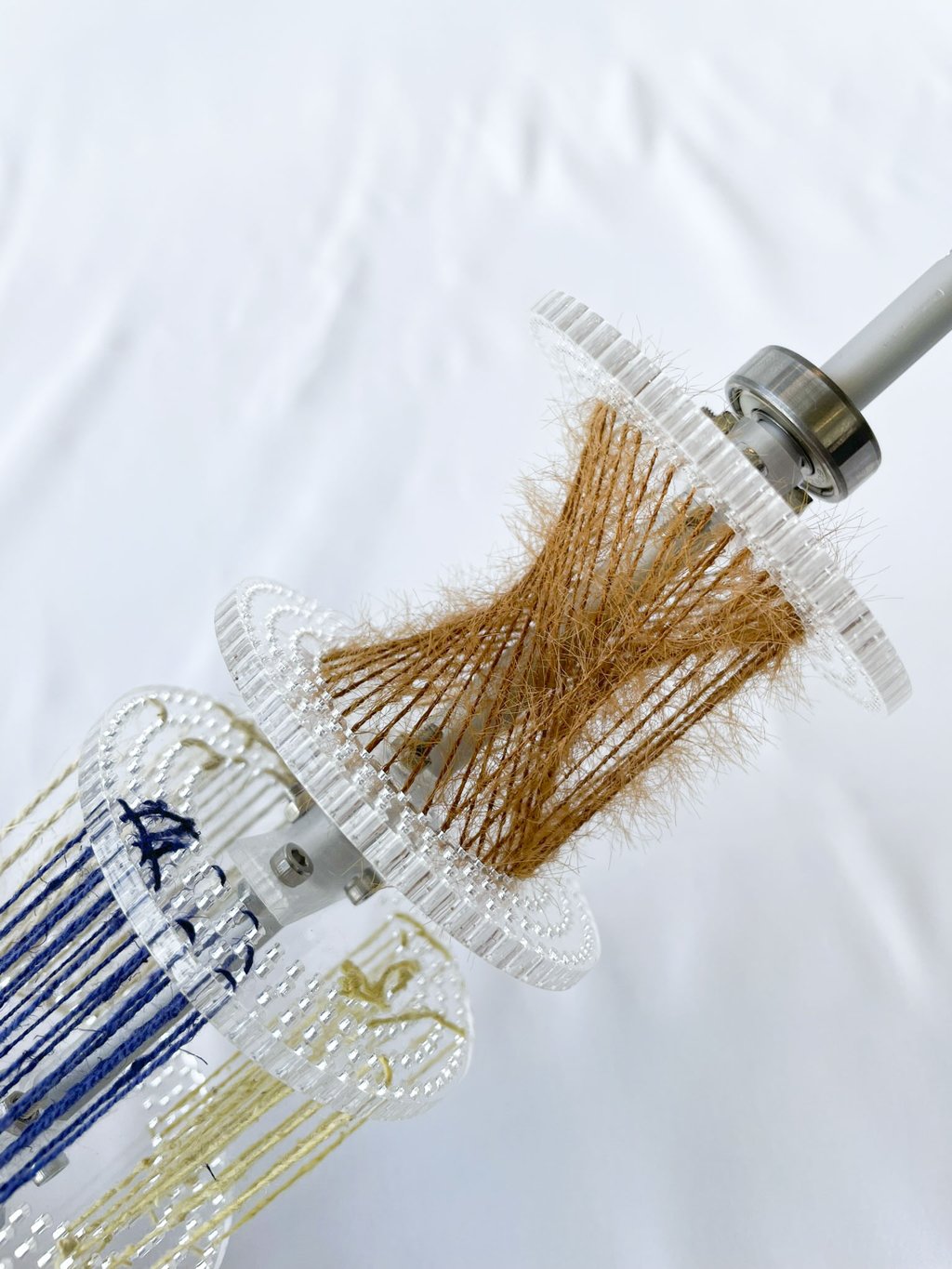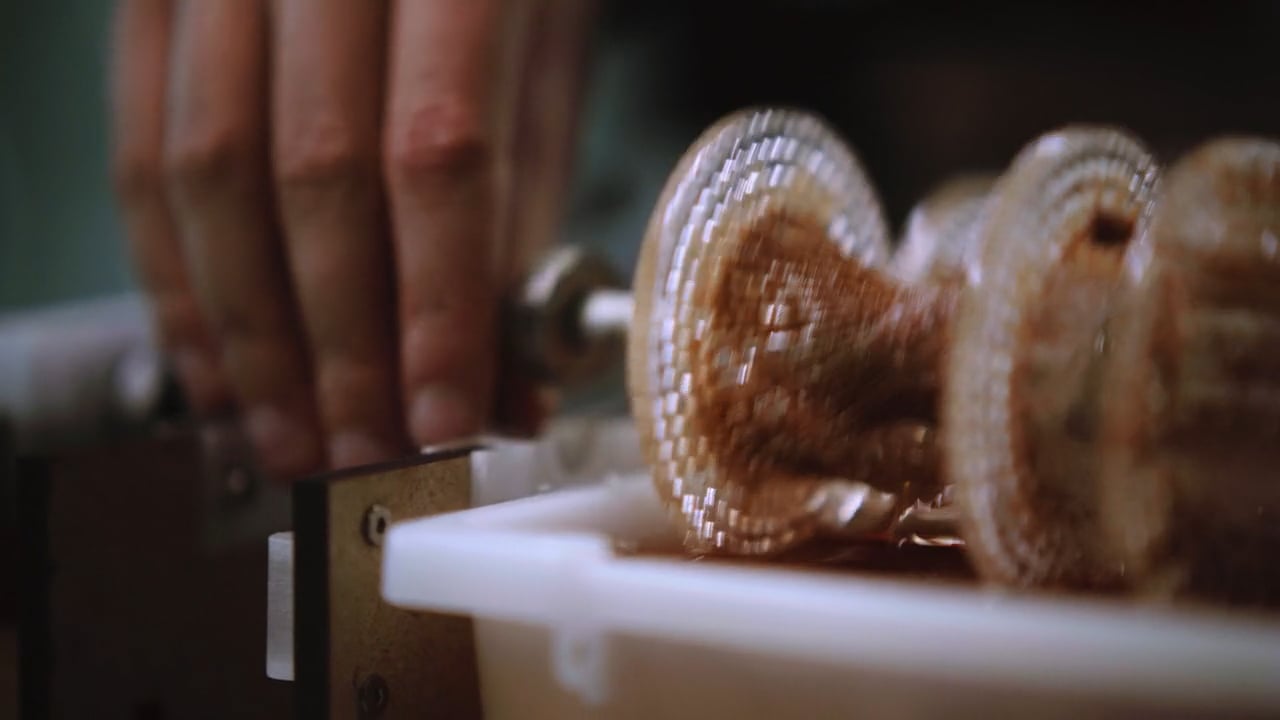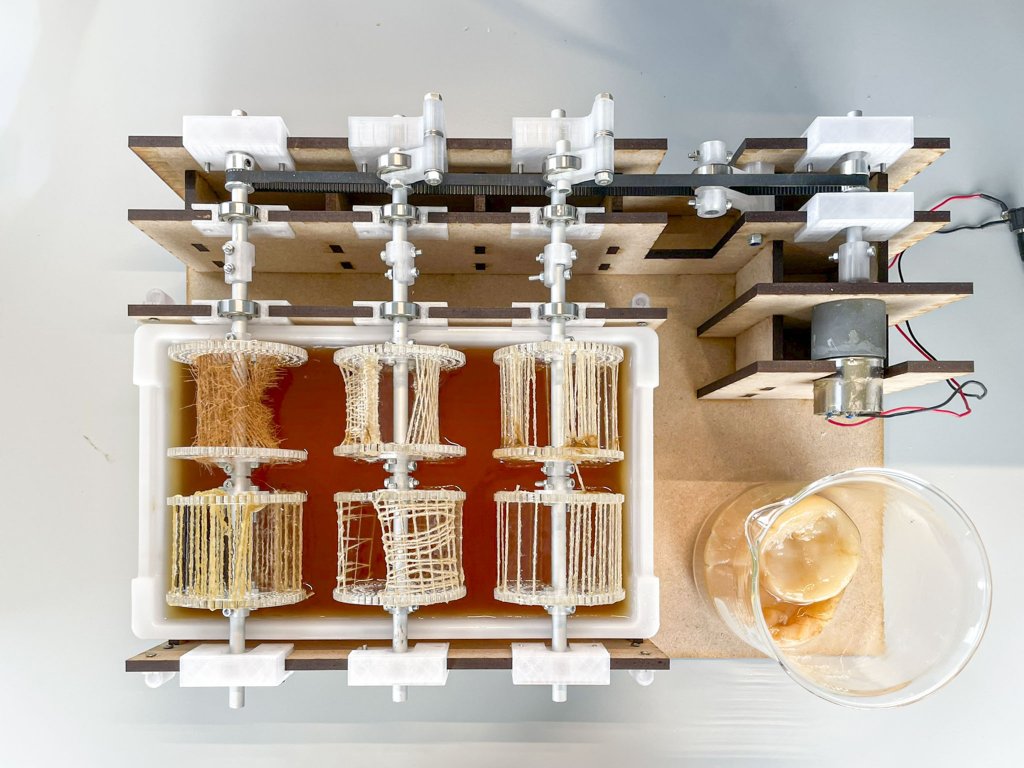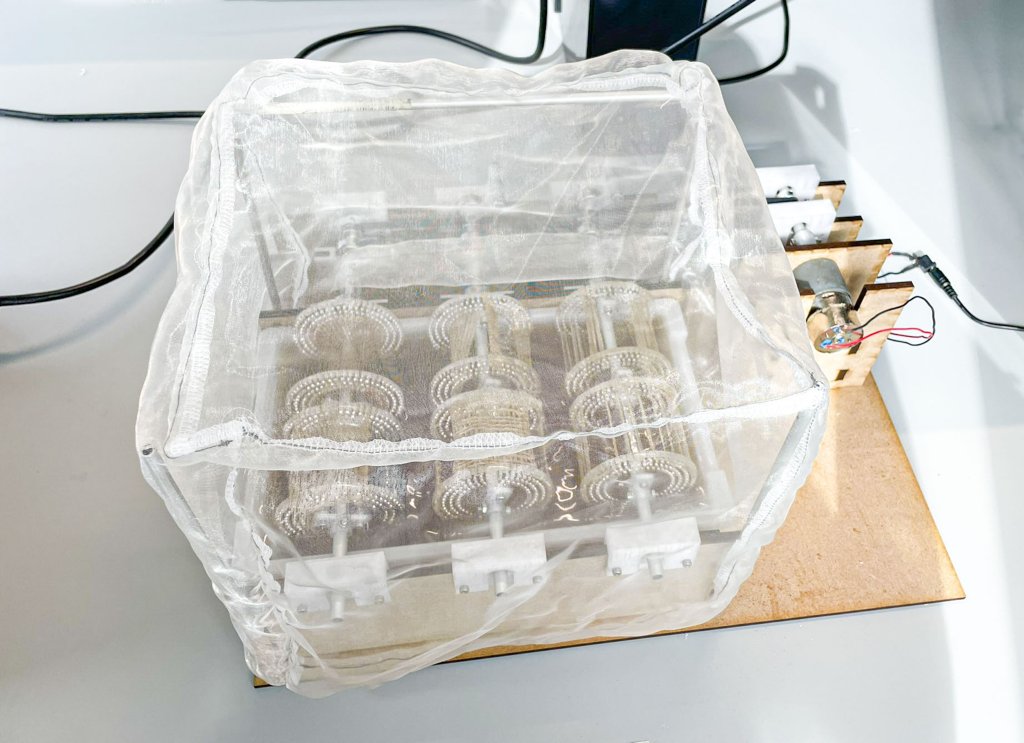Taïssia Visser
Many strategies aimed at designing environmentally friendly products emphasize selecting sustainable materials to improve a product’s sustainable performance. The need for circular and renewable materials is fueling the exploration of cross-fertilization between biology and design. SCOBY—a symbiotic culture of bacteria and yeast—is emerging as a promising bio-fabricated material. However, its natural 2D morphology is a limiting factor in its functionality. This project investigates the potential of growing alternative 3D morphologies by integrating textile frameworks with custom-built bioreactors to create 3D SCOBY-textile artefacts, pushing material fabrication boundaries.
How does integrating living organisms into material production influence your thoughts on resource conservation?
The project takes a material-driven approach and focuses on bio-fabrication experiments to control and manipulate SCOBY’s self-assembling and adherence abilities on textile scaffolding. The goal is to design a fabrication process that creates shapes and aesthetics that are unachievable without the textile scaffolding system, emphasizing the significance of DIY fabrication methods. We experimented with various custom-built bioreactors to explore new processes. We developed different textile scaffoldings using techniques including weaving, knitting, and embroidery. These were integrated into the material during the growing phase, enabling the artefacts to retain their 3D structure after drying and enhancing their aesthetic appeal. The insights gained from these experiments inform the design of a prototype bioreactor capable of facilitating growth, colouring, post-processing and drying of the composite artefacts. Visitors to the Dutch Design Week can view results from our initial experiments.

This project is highly relevant to the theme of "Living Environment" as it directly engages with the idea of designing materials that enhance our quality of life while being environmentally responsible. By exploring the use of SCOBY bacterial cellulose in combination with textile scaffolding, the project innovatively addresses the need for sustainable materials that can be used in everyday living spaces. The potential impact includes contributing to a healthier living environment by reducing reliance on non-renewable resources and introducing biodegradable, aesthetically appealing materials. However, the project faces possible limitations such as the scalability of the bio-fabrication process and the durability of the resulting materials in real-world applications. Despite these challenges, the project offers a promising approach to designing materials that align with both ecological sustainability and the improvement of our living environments.







